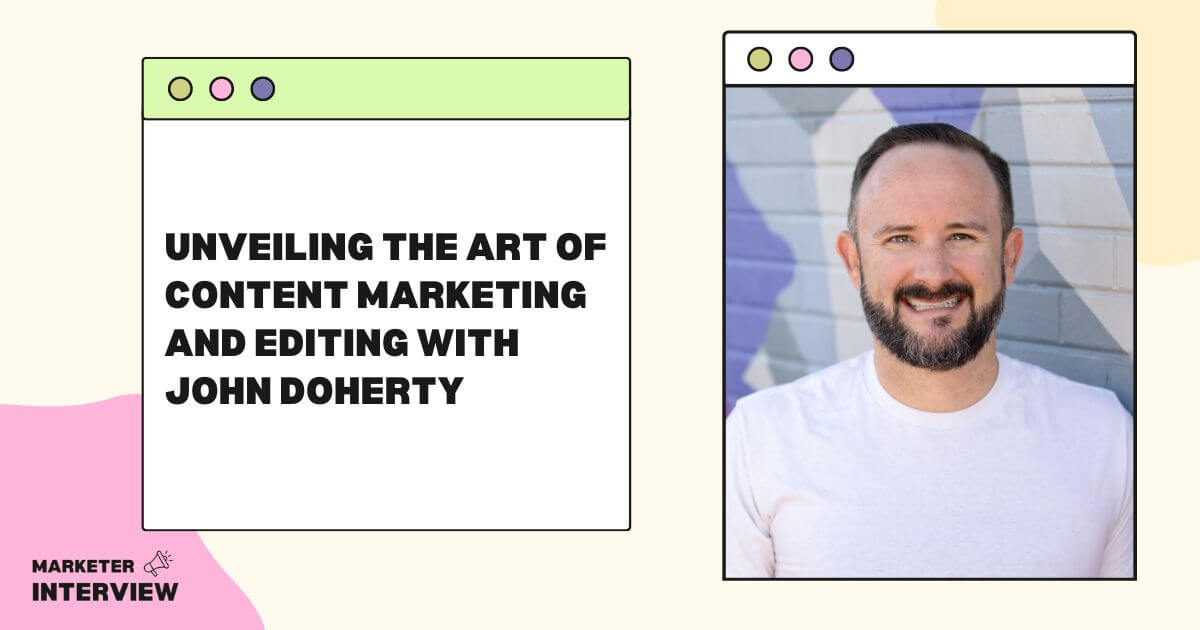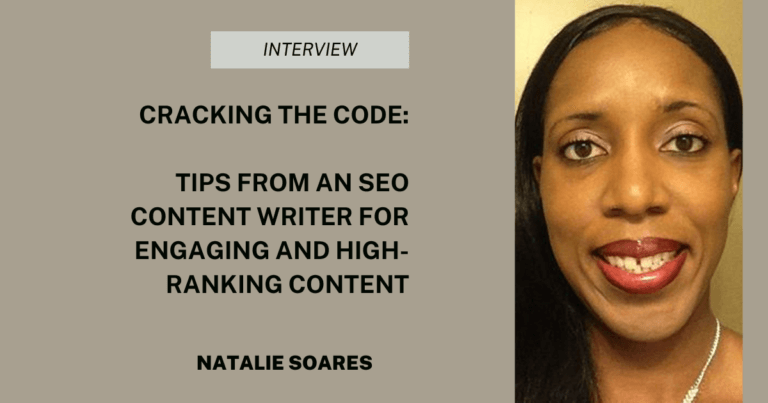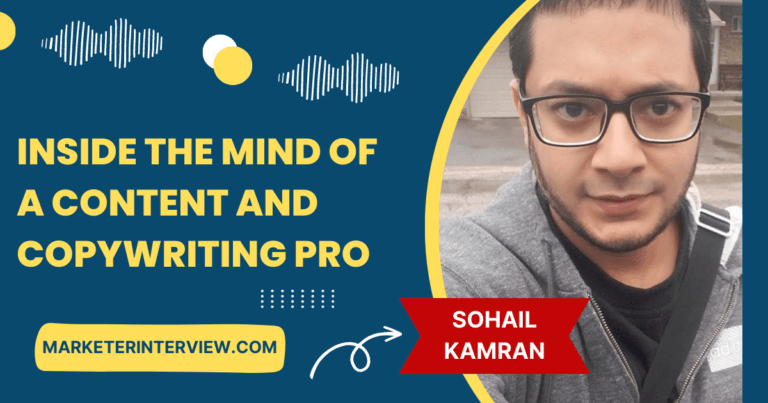Unveiling the Art of Content Marketing and Editing with John Doherty
Welcome to Marketer Interview, the go-to blog for insightful conversations with top-notch marketers.
In today’s edition, we have the privilege of speaking with John Doherty, the Founder of EditorNinja and an expert in content marketing and editing.
With an impressive background as a three-time six-figure business founder and a renowned SEO professional, John’s journey in entrepreneurship and marketing is nothing short of inspiring.
Let’s jump into John Doherty’s journey and content marketing and editing expertise.
Contents
- 1 Can you take us through your journey from running a book publishing company in a Swiss dairy village to becoming a renowned marketer and entrepreneur?
- 2 As an expert in content marketing, what key strategies or techniques have you found to be highly effective in driving traffic and generating leads?
- 3 Tell us more about EditorNinja and how professional editing services contribute to producing better content. What differentiates your approach from other editing services available in the market?
- 4 With your vast SEO industry experience, what role does SEO play in content marketing?
- 5 What are some common mistakes or misconceptions businesses make regarding content marketing?
- 6 As the Founder of Credo, you help businesses find and hire the right digital marketing firms. What criteria do you recommend businesses consider when selecting a marketing partner?
- 7 What role does outsourcing play in the growth of companies? What advice would you give to businesses considering outsourcing their content marketing efforts?
- 8 Can you share some insights into the tools and software you use personally or recommend for content marketing and editing? How do these tools enhance your productivity and efficiency?
- 9 What emerging trends or developments do you foresee in content marketing? How should marketers adapt to these changes to stay ahead of the competition?
Can you take us through your journey from running a book publishing company in a Swiss dairy village to becoming a renowned marketer and entrepreneur?
I’d say my journey has just been one long consistent road.
I had the opportunity to help run the publishing company in Switzerland in 2009 after I had helped them for a few months in 2008. My web development and writing/blogging background lent itself to diving into the publishing world. I was technical enough to know how to build websites and do some basic SEO, and then I learned more while working there.
Once I moved back to the States, I got my first job in SEO at an agency in Philadelphia, then relatively quickly laddered up to Distilled, where I spent the next few years.
Then I led SEO (and digital overall) at HotPads.com and Trulia Rentals under the Zillow group of brands. After that, I built my brands, first Credo (getcredo.com) and now EditorNinja (editorninja.com).
My career has been built from my blogging and speaking, though. That’s been the consistent through-line across my different roles and experiences.
As an expert in content marketing, what key strategies or techniques have you found to be highly effective in driving traffic and generating leads?
Traffic is easy:
Find medium to high-volume keywords your ideal customer is searching for, then create great content around that topic using proven on-page SEO techniques. If you’ve done your technical SEO setup correctly and are building a brand and getting natural and strong backlinks, you’ll rank.
Conversion to leads is another beast.
The best way to generate leads through content is by ranking for high-volume terms that solve your ideal customer’s need and get them to want to dive further with you via a demo or introductory call.
I’d much rather have 1,000 visits per month with a 10% conversion rate than 100,000 visits at a 0.05% conversion rate.
A tactic that works well to convert visitors to leads is to offer two conversion types as call-outs in your content.
The first is a direct call to action to book a call, often best introduced via a question on the pain points you know they are feeling. The second is an offer to download a free piece of content that helps them dive deeper into the topics they are interested in and are relevant to the post they are currently reading.
Tell us more about EditorNinja and how professional editing services contribute to producing better content. What differentiates your approach from other editing services available in the market?
Studies repeatedly show that content with errors converts dramatically worse than content without errors. This includes but isn’t limited to, typos and grammatical errors. It also includes content being on-brand stylistically as well as thematically.
EditorNinja’s editors primarily focus on copy editing and proofreading to help content agencies and in-house content teams produce on-brand content at scale.
They take care of the challenging work of strategy and produce thematically on-brand content, and we come alongside them to handle the final reviews so they can focus on higher-value work. The end of the content production process is time-consuming, so we save them a lot of time and unstick the publishing process.
With your vast SEO industry experience, what role does SEO play in content marketing?
It’s been proven repeatedly that businesses who produce content for marketing, especially blog posts and more extensive content such as guides and unique studies, perform better in search than companies who don’t.
In short: all SEO involves content, but not all content is created for SEO. A wide variety of other content happens at companies that won’t drive organic traffic but will move the business needle. For example, help docs are handy but probably won’t drive traffic, and if it does, that’s usually a low-priority reason to create it.
Integrating SEO best practices into content involves educating the people creating content and the person in charge of overseeing content production, prioritizing their knowledge, and implementing SEO practices into their content. Without someone driving the process and prioritization, SEO won’t happen internally.
What are some common mistakes or misconceptions businesses make regarding content marketing?
The most common mistake I’ve seen businesses make is not investing in content long enough to see results.
Too many get to the point where they are on the cusp of changing their business through content, but they give up. These businesses are usually also the ones who want to “start small and scale up,” which means they don’t put the needed budget into the channel to see results.
When a company wants to start with content marketing, I ask them if they are willing to invest for at least 12 months and at an above-average level of investment to make up ground against their competitors, who have often been investing in content for many years. If the company isn’t willing to make that investment and do it right, I advise them not to start.
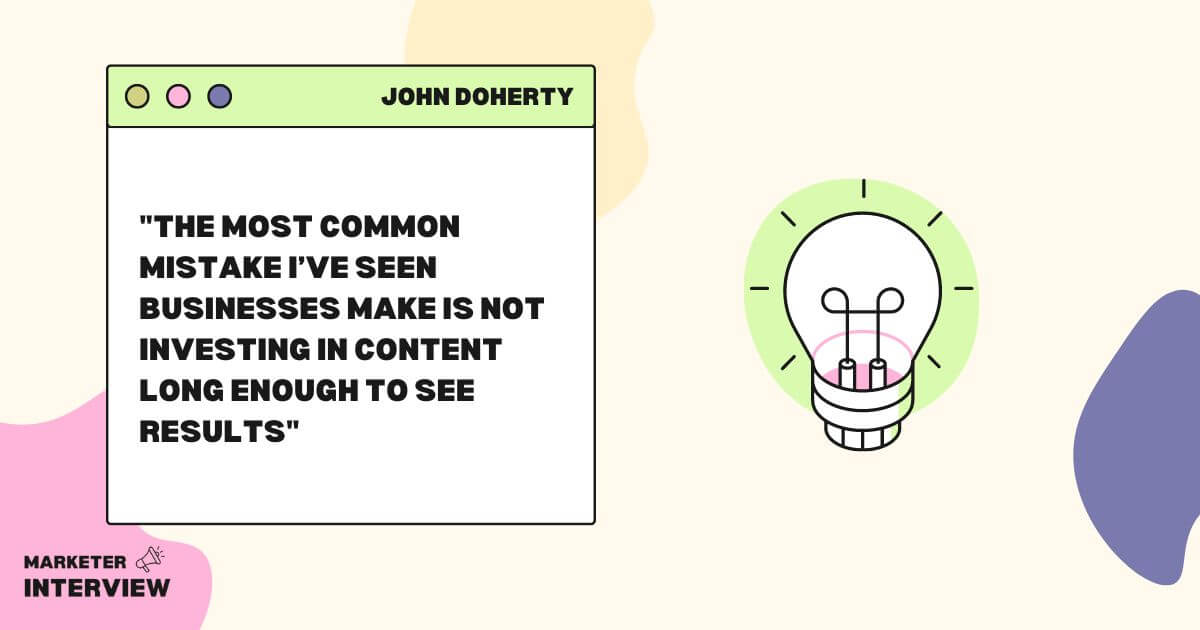
As the Founder of Credo, you help businesses find and hire the right digital marketing firms. What criteria do you recommend businesses consider when selecting a marketing partner?
The main criteria to consider when hiring a digital agency is if the agency has experience working with your type of business, ideally in your niche, at your stage.
An agency that primarily works with e-commerce businesses doing more than $50M a year in revenue is likely not the right fit for your sub-$1M ARR SaaS company unless they have extensive provable experience with companies like yours.
Similarly, a company unfamiliar with your niche likely will not be as effective as a company that has worked in or tangentially to your niche.
As far as red flags, stay away from any agency that insists on owning anything that should be yours (domain, hosting, analytics), who is not transparent with the strategies they use, or does not report on the results of their work.
What role does outsourcing play in the growth of companies? What advice would you give to businesses considering outsourcing their content marketing efforts?
Outsourcing can make a lot of sense for companies at different times in the business’s lifecycle.
For some companies, outsourcing makes sense when they can’t justify a full-time higher, or it’s taking too long to hire someone full-time. For others, outsourcing can be a great way to buy back your team’s time so they can focus on more profitable initiatives.
Ideally, outsourcing should be considered a way to scale people or buy back time. Outsourcing a task you don’t know how to do or just to get a new initiative started almost always fails.
For businesses considering outsourcing their content marketing efforts, I advise them to make sure someone internally is ultimately responsible for the results.
While it’s tempting to try to outsource that as well, and many agencies will tell you they’re a “partner,” the reality is that most agencies are spread thin. If you want to see results, you need someone internally overseeing the channel and being responsible for the business results.
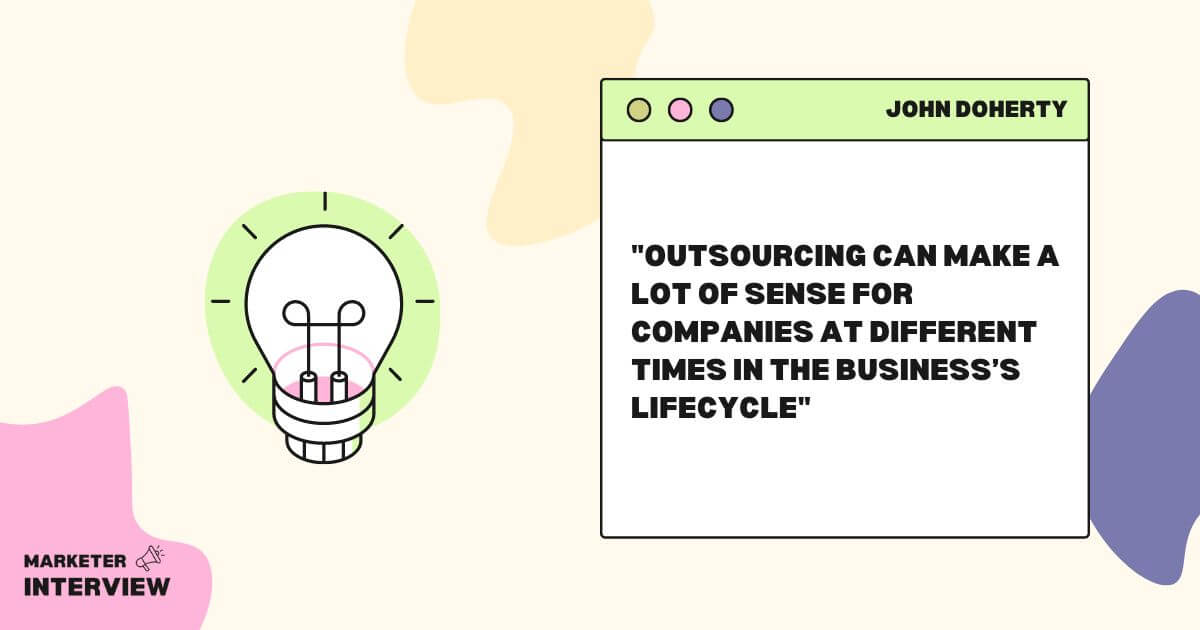
One of the great things about content marketing is that endless tools are available to help you achieve better results through content.
One of the most challenging parts of content marketing is choosing which tools to use. I like to keep it simple with keyword research and measurement tool.
My tool for this is Semrush because I’ve used it for over a decade.
You also need a tool to help you optimize your content with related keywords that recommend other things to include in your posts.
I use Semrush’s SEO Writing Assistant because it is included with my subscription, but there are some higher-powered tools, like ClearScope, Frase, SurferSEO, and more. The tool itself isn’t so important, just pick one and use it.
Finally, we make extensive use of Grammarly at EditorNinja. Our professional human editors are world-class at what they do, and leveraging tools like this helps us ensure we’re delivering the best work possible.
What emerging trends or developments do you foresee in content marketing? How should marketers adapt to these changes to stay ahead of the competition?
The obvious one that every content marketer needs to pay attention to is AI and using AI tools to improve your workflows. AI needs skilled operators, so it is necessary to become familiar with how these tools work and use them to improve outputs and results.
